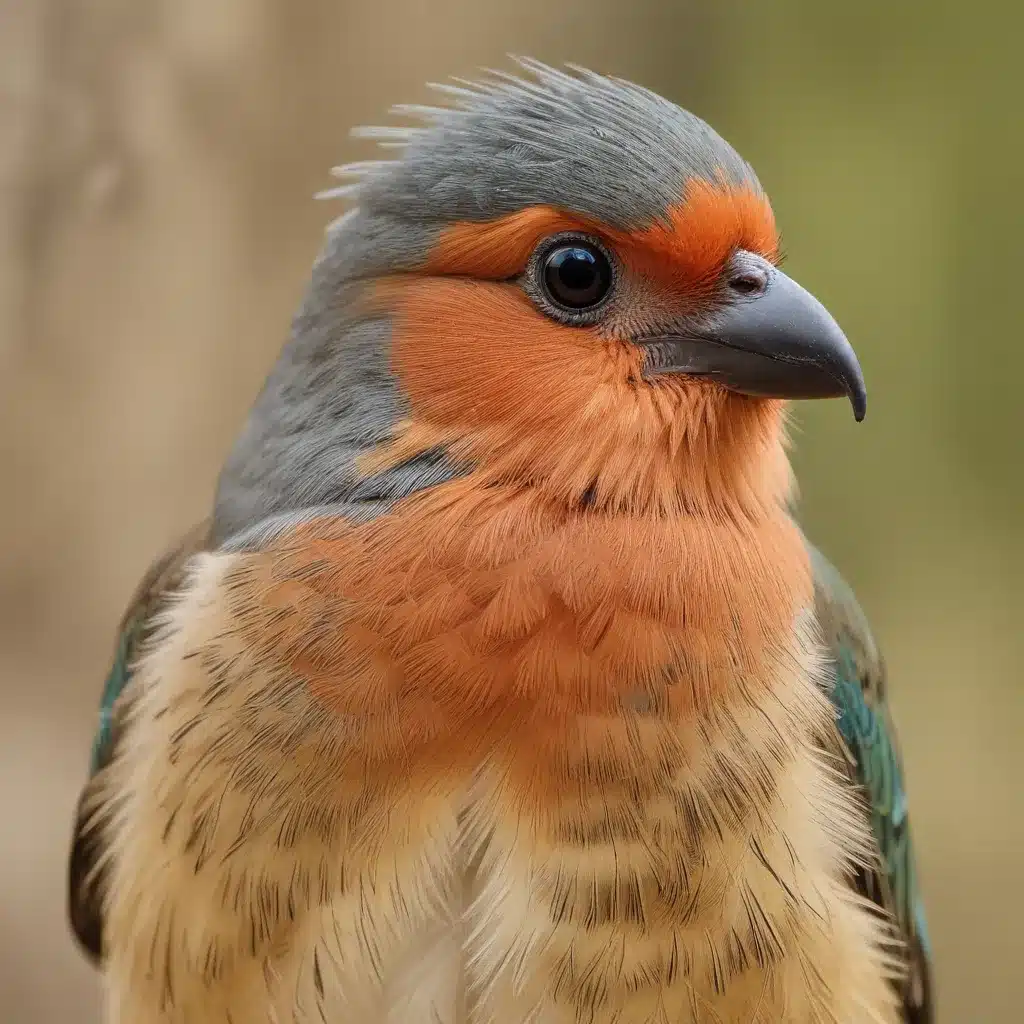
Maintaining Bird Health Through Proactive Preventative Care
As an experienced avian caretaker and expert in the field, I understand the vital importance of proactive preventative care when it comes to maintaining the health and well-being of our feathered friends. Birds, with their unique anatomical and physiological characteristics, require specialized attention to ensure they thrive and live long, happy lives.
Avian Anatomy and Physiology
To provide the best possible care, it’s essential to have a deep understanding of avian anatomy and physiology. The respiratory system of birds is distinctly different from mammals, with a series of air sacs that facilitate efficient oxygen exchange. Similarly, their digestive system is adapted to handle a wide range of dietary requirements, from nectar-feeding hummingbirds to seed-eating parrots.
Recognizing these unique traits is the foundation for developing effective preventative care strategies that cater to the specific needs of each bird species. By staying informed and vigilant, we can proactively address potential health concerns before they escalate.
Common Avian Health Concerns
In the avian world, viral infections, bacterial infections, and parasitic infestations are some of the most common health challenges. Viral diseases, such as Pacheco’s disease and Psittacine Beak and Feather Disease (PBFD), can have devastating consequences if left unchecked. Bacterial infections, including Chlamydiosis and Avian Tuberculosis, can also pose significant risks to our feathered companions.
Parasitic infestations, ranging from mites and lice to intestinal worms, can compromise a bird’s overall well-being and lead to serious complications if not properly addressed. By staying vigilant and implementing proactive preventative measures, we can significantly reduce the likelihood of these health issues and ensure our birds thrive.
Preventative Care Strategies
Nutrition and Diet
One of the cornerstones of avian preventative care is ensuring a balanced and appropriate diet. Birds have unique nutritional requirements that vary greatly depending on their species, age, and life stage. Providing a diet rich in essential vitamins, minerals, and macronutrients is crucial for maintaining optimal health.
Regular dietary supplementation, such as calcium and vitamin D3 for bone health, can also play a vital role in preventing common deficiencies and supporting overall well-being. As an experienced avian caretaker, I always emphasize the importance of consulting with an avian veterinarian or qualified avian nutritionist to develop a personalized feeding plan for each of my feathered charges.
Habitat and Environment
Creating the right habitat and environment is another critical aspect of avian preventative care. Proper cage or enclosure size, appropriate substrate, and adequate perching options are essential for ensuring a stress-free and enriching living space. Maintaining the correct temperature and humidity levels is also crucial, as birds are highly sensitive to environmental changes.
By providing a safe, comfortable, and stimulating habitat, we can minimize the risk of health issues related to stress, improper housing, or environmental factors. Regularly monitoring and adjusting the habitat as needed is a key responsibility for all avian caretakers.
Avian Wellness Examinations
Routine Check-ups
Regular wellness examinations are the cornerstone of preventative care for our feathered companions. These check-ups, conducted by experienced avian veterinarians, involve a comprehensive physical examination, including an assessment of the bird’s body condition, feather quality, and overall appearance.
In addition to the physical exam, diagnostic screening, such as blood work and fecal analysis, can provide valuable insights into the bird’s internal health status. By proactively monitoring for any underlying issues or early signs of illness, we can intervene promptly and implement appropriate treatment or management strategies.
Early Detection of Illness
Observing and recognizing subtle behavioral changes in our birds is crucial for the early detection of potential health concerns. Changes in appetite, activity levels, vocalizations, and even feather condition can be early warning signs of an underlying problem.
Familiarizing ourselves with the normal behavior and habits of our feathered companions is essential for quickly identifying any deviations from the norm. By staying attuned to these changes and seeking veterinary attention promptly, we can increase the chances of successful treatment and a positive outcome.
Proactive Disease Prevention
Vaccination Protocols
Vaccination is a powerful tool in the arsenal of avian preventative care. While not all bird species require vaccination, there are core vaccines recommended for certain species, such as Psittacine birds, to protect against common viral diseases.
Consulting with an avian veterinarian is crucial for determining the appropriate vaccination protocol for your birds. Proper timing and administration of these vaccines are essential to ensure maximum efficacy and protection for our feathered friends.
Biosecurity Measures
Implementing robust biosecurity measures is another crucial aspect of avian preventative care. This includes quarantine procedures for new birds introduced to the flock, as well as comprehensive disinfection protocols for the living environment.
By proactively isolating new arrivals and maintaining strict hygiene standards, we can minimize the risk of disease transmission and protect the overall health of our avian community. Diligence in these biosecurity measures can make a significant difference in the long-term well-being of our birds.
In conclusion, maintaining bird health through proactive preventative care is a multifaceted endeavor that requires a deep understanding of avian anatomy, physiology, and common health concerns. By focusing on nutrition, habitat, routine wellness exams, and proactive disease prevention, we can provide our feathered companions with the best possible care and ensure they live long, healthy, and enriched lives.
At Mika Birds Farm, we are committed to empowering bird owners with the knowledge and resources necessary to keep their feathered friends thriving. Our team of experienced avian experts is dedicated to guiding you through every step of the preventative care process, from developing personalized feeding plans to implementing effective biosecurity measures.
Remember, an ounce of prevention is worth a pound of cure when it comes to our beloved birds. By staying vigilant and embracing a proactive approach to their health and well-being, we can give our feathered friends the best chance at a long, happy, and fulfilling life.


